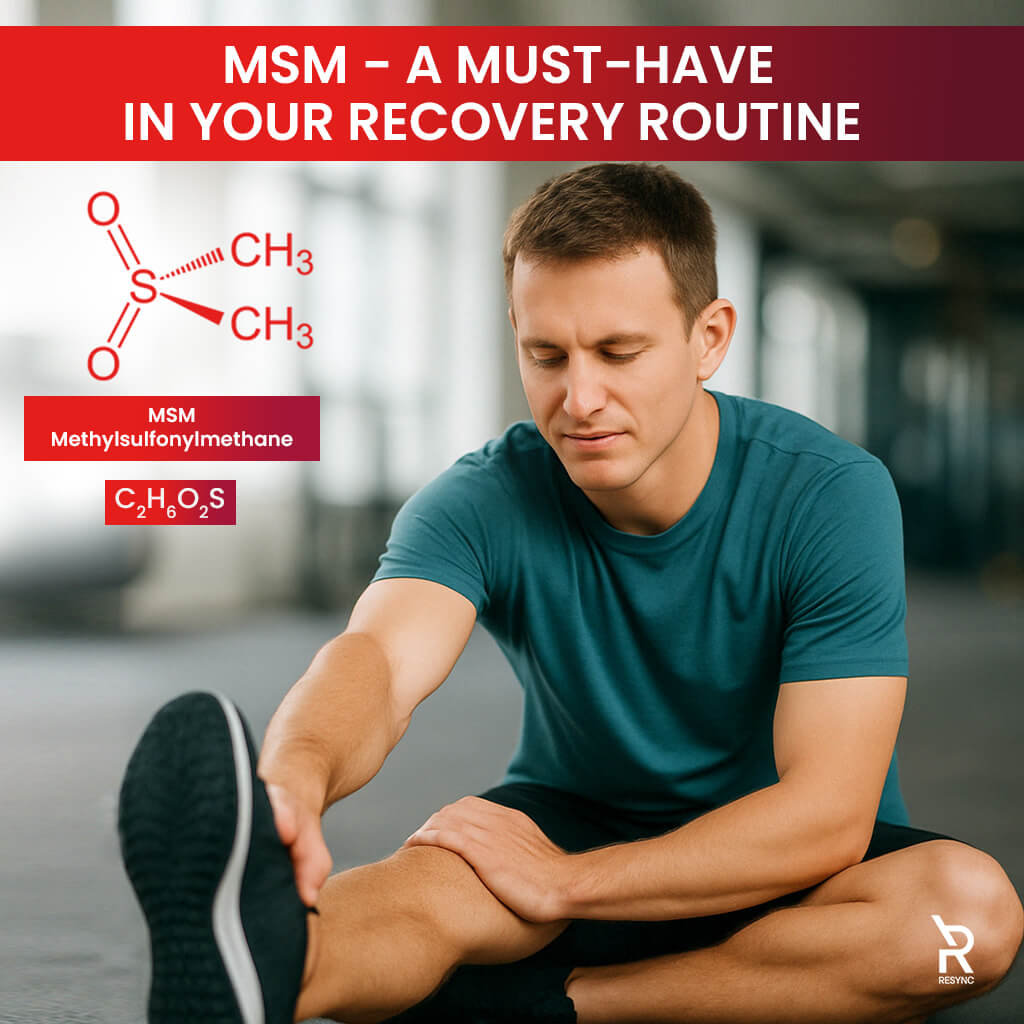How Copper Can Help You Build Stronger Collagen

Do you want a strong body, resilient against connective tissue issues? Want to avoid injuries like a sprained ankle, Achilles tendonitis, stress fractures, plantar fasciitis, turf toe, or a muscle strain? Then you need to pay attention to the health of your collagen - a common protein of every layer of your body. That is right: your skin, muscles, tendons, ligaments, fascia, cartilage, and bones all need collagen. But to make healthy collagen, you need to eat the right amount along with critical cofactors that help you make stronger collagen. Copper is one of these supportive nutrients, and it's very rarely present in collagen supplements. Copper and collagen play a key role in your bodies health.
What Are The Health Benefits of Copper?
Without copper, your connective tissues would be floppy and weak — not precisely what you're looking for whether you're walking, running your first 5K, or your 50th marathon.
When your body makes collagen, one of the critical last steps of the process is when collagen molecules are linked together to form extremely strong sheets or bands of connective tissue — a process called enzymatic cross-linking.Copper is the nutrient that makes this crucial step happen.
Almost two-thirds of the body's copper is located in the skeleton and muscle. If you don't get enough copper and have a deficiency, then it's your connective tissues that feel it early. So you can see that copper and collagen production go hand in hand.
Besides its crucial role in a healthy musculoskeletal system, copper and collagen is also important for growing new blood vessels, regulating blood cholesterol, making hormones, gene expression, cellular development, and, importantly, your immune system. Copper supplements also benefit your skin, by helping your body produce stronger and healthier collagen.
Copper is absolutely critical to make the enzymes that sense inflammation and fight oxidative stress: the copper-containing superoxide dismutases. These enzymes sense when your cells are stressed, neutralize the oxidation that causes that stress and helps you recycle your master antioxidant, glutathione. Plus, research shows that supplementing with 2 mg of copper daily can increase levels of superoxide dismutase and ceruloplasmin, both important for a healthy heart.
Copper is so important for connective tissue health that we've included 100% of your daily recommended value in the revised formula for our Collagen Peptides. You get that copper alongside plant-based nitric oxide blend to oxygenate your tissues, hydrolyzed collagen peptides to provide the building blocks for new tissues, and Boswellia Serrata, vitamin C, and HCL glucosamine — all of which with the research to back them up for supporting healthy connective tissue and musculoskeletal recovery.
How Much Copper Should I Get Every Day?
The recommended daily allowance to meet most people's daily needs is 0.9 mg of copper for the day. This is based on the amount you need to avoid deficiency.
The average American diet provides approximately 1.4 mg per day for men and 1.1 mg/day for women. Copper in supplements also contributes to the total amount of copper that you get in a day.
Which Foods Are High In Copper?
Coming in at 12,000% of your recommended daily intake in one serving, liver takes the cake (by far!) when it comes to copper content.
Also high in copper are oysters and 100% pure dark chocolate. Just 1 ounce of either of these gives you more than your daily recommended amount.
Then there are a number of plant-based foods that are high in copper. A few servings of these will get you your daily requirement:
Potatoes (with skin)
Cashews
Dark chocolate
Sunflower seeds
Tofu
Avocado
Spinach
Asparagus
Mushrooms
The benefit of getting your copper from foods is all the other nutrients you get in these above superfoods. The vital nutrients that come along with copper sources means that you’ll be optimizing more than your connective tissue and immune health when you prioritize copper in your diet.
Can You Eat Too Much Copper?
The short answer is yes!
The upper limit set by the National Institutes of Health is 8 – 10 grams of copper daily. Unless told to by a healthcare provider, avoid getting more copper than that. Unless you are eating liver or clams every single day, it's unlikely you'll get to that level.
But if you take multiple supplements and add up the amount of copper in each one you're getting, you might be surprised how much copper you're getting on top of the Average daily intake. The average person gets 1.4 – 1.7 mg per day, just from supplements.
What Are The Symptoms Of Copper Deficiency?
In the U.S., 6 to 15% of people do not get enough copper daily but aren't quite low enough to be considered deficient. This subclinical copper insufficiency may be related to cardiovascular disease, Alzheimer's disease, and poor immune function, but the research around this is in the early stages, so take it with a grain of salt.
Keep in mind that high doses of zinc can cause copper deficiency. So, if you're taking zinc — in denture creams or commonly taken to help boost immune system function — take a zinc supplement that bypasses digestion (i.e., under the tongue) and only takes zinc supplements for a short period, not for the whole cold season!
Should You Take Copper With Other Nutrients?
Like we mentioned in a previous blog, "What You Need To Know About Glucosamine" to build healthy collagen, you need more than copper.
It may also be a good idea to get your copper with other supportive nutrients to support healthy immune function and optimize your energy levels. For example, very high in Brazil nuts, selenium complements the copper, containing proteins that fight oxidative stress.
Copper and vitamin C work together in a lot of places. One of the most important is building collagen tissues; vitamin C (along with iron) is critical for one of the first steps. Other nutrients like manganese, zinc, and others are also crucial for connective tissue health. By making sure you're getting enough vitamin C along with your copper, you enhance your ability to build resilient musculoskeletal tissues from the beginning of the process to the end.
From the perspective of beauty and healthy skin — a window into your overall connective tissue health — copper supplements benefit your skin after sun exposure by facilitating the tanning process, which helps prevent further sun damage down the road as you are getting your daily dose of vitamin D.
If you want to know more about how your nutrition can affect your ability to keep your connective tissue healthy, recover from an injury, or exercise, check out Resync's new course on connective tissue nutrition!
The Takeaways
- Copper and collagen production is crucial for building a strong aresilient body.
- Copper is also important for a healthy immune system, high levels of energy day after day, and the prevention of chronic conditions.
- Get copper in a variety of plant-based superfoods, as well as highly-concentrated oysters and beef liver. It’s unlikely that you will eat too much copper in a day, but if you’re taking supplements and have a healthy diet, you may want to make sure you’re not getting too much.
- 6 to 15% of the U.S. population does not get enough copper daily, so dial in those top foods and you will start feeling what you’ve been missing out on.
- Taking copper with other nutrients, especially iron, vitamin C, and zinc is not only critical for a healthy immune system, but can help with a holistic approach to fighting oxidative stress and chronic inflammation, while also boosting your connective tissue strength and recovery time!
- Copper supplement benefits for skin include, better collagen prodction, and helps promote the tanning process.
We want to hear from you!
Want the practical details on how to eat and supplement to support your exercise recovery, heart health, beauty, and energy levels?
Stay Connected. Sign up for our weekly newsletter
References
DiSilvestro, Robert A., et al. “A Randomized Trial of Copper Supplementation Effects on Blood Copper Enzyme Activities and Parameters Related to Cardiovascular Health.” Metabolism: Clinical and Experimental, vol. 61, no. 9, Sept. 2012, pp. 1242–46. PubMed, https://doi.org/10.1016/j.metabol.2012.02.002.
Klevay, Leslie M. “Alzheimer’s Disease as Copper Deficiency.” Medical Hypotheses, vol. 70, no. 4, 2008, pp. 802–07. PubMed, https://doi.org/10.1016/j.mehy.2007.04.051.
Klevay, Leslie M. “Is the Western Diet Adequate in Copper?” Journal of Trace Elements in Medicine and Biology: Organ of the Society for Minerals and Trace Elements (GMS), vol. 25, no. 4, Dec. 2011, pp. 204–12. PubMed, https://doi.org/10.1016/j.jtemb.2011.08.146.
National Institute of Health. Office of Dietary Supplements - Copper. https://ods.od.nih.gov/factsheets/Copper-HealthProfessional/. Accessed 30 Aug. 2021.
Opsahl, W., et al. “Role of Copper in Collagen Cross-Linking and Its Influence on Selected Mechanical Properties of Chick Bone and Tendon.” The Journal of Nutrition, vol. 112, no. 4, Apr. 1982, pp. 708–16. PubMed, https://doi.org/10.1093/jn/112.4.708.
Ross, A. Catharine, et al. Modern Nutrition in Health and Disease: Eleventh Edition. Wolters Kluwer Health Adis (ESP), 2012. jhu.pure.elsevier.com, https://jhu.pure.elsevier.com/en/publications/modern-nutrition-in-health-and-disease-eleventh-edition.
Written by Barbara Depta and registered dietitian, Detrick Snyder, MPH, RDN.
Updated on 9/01/2021.
Disclaimer
This content is for general informational purposes only, and does not constitute the practice of any professional healthcare service, INCLUDING the giving of medical advice. No provider-patient relationship is formed. The use of this information, and the materials linked to this content is at the user's own risk. This content is not intended to be a substitute for professional medical advice, diagnosis, or treatment. Users should abide by the advice of their healthcare provider, and should not disregard or delay in obtaining medical advice for any medical condition they may have.





